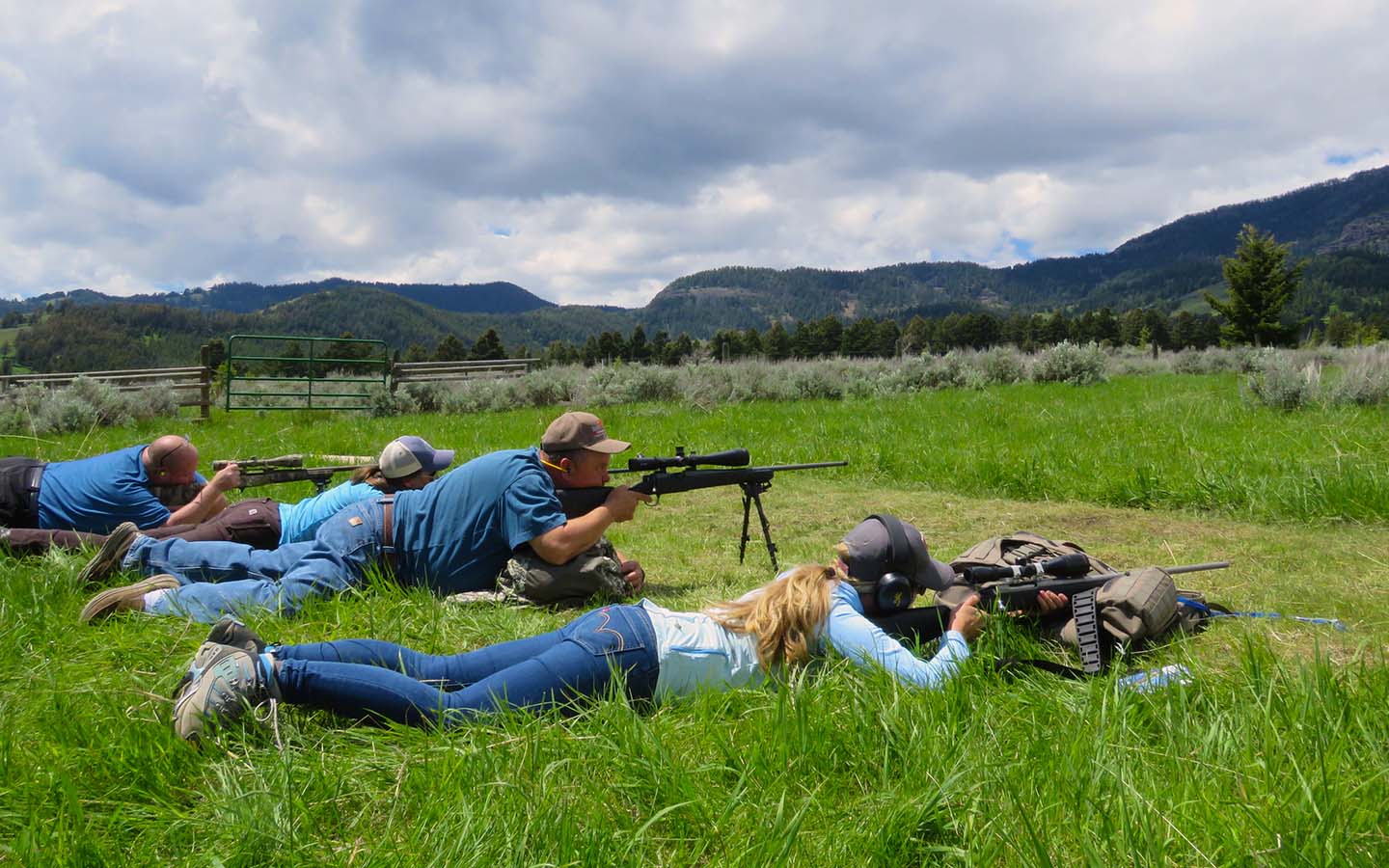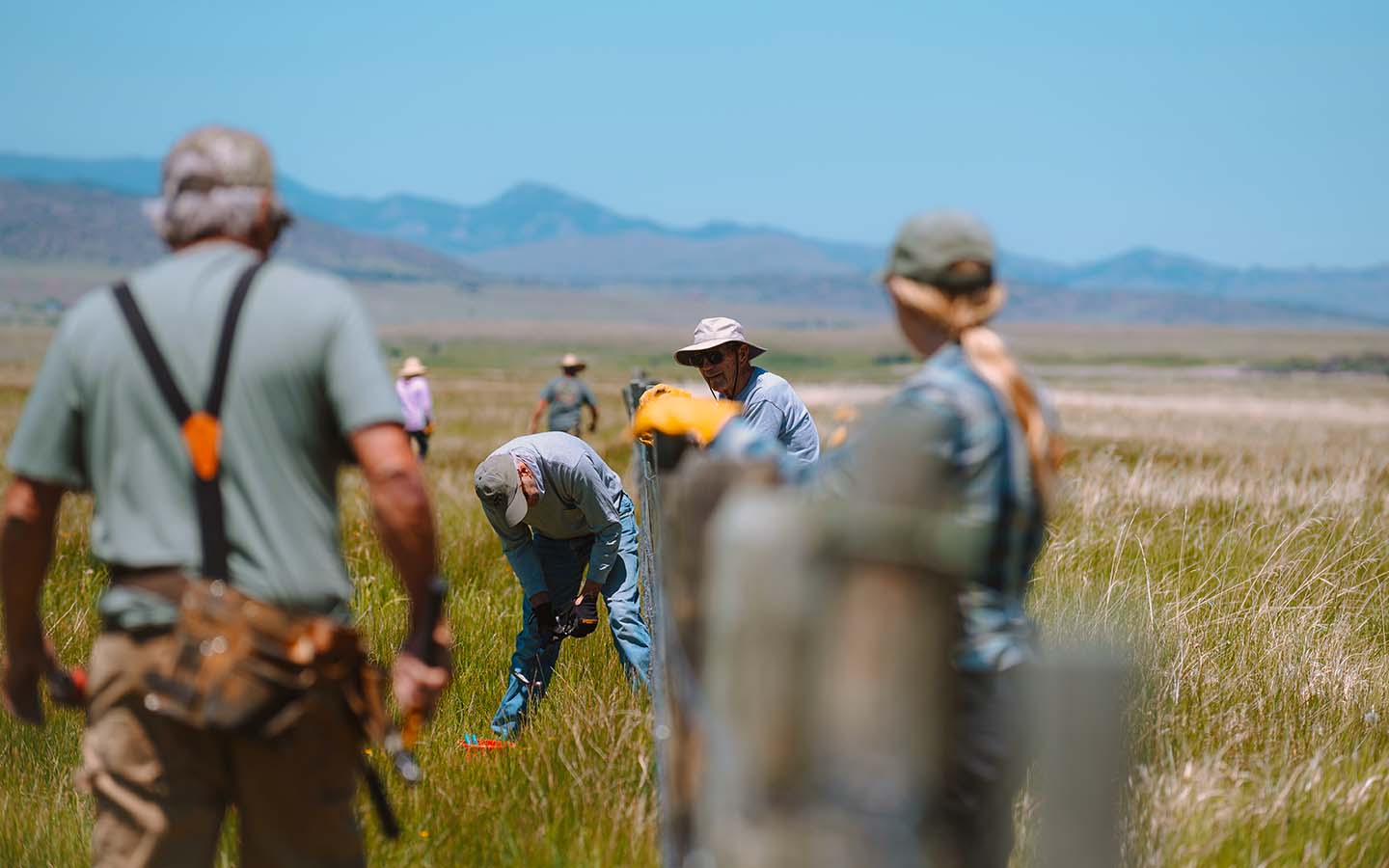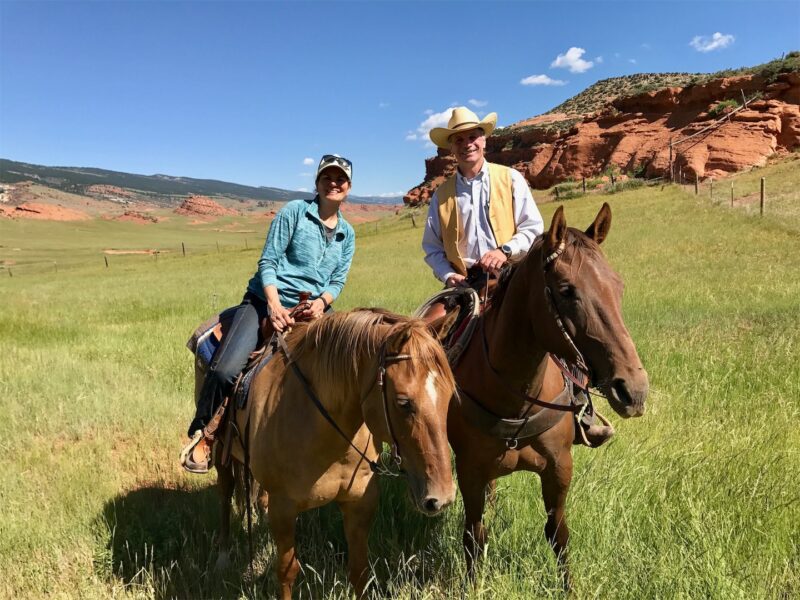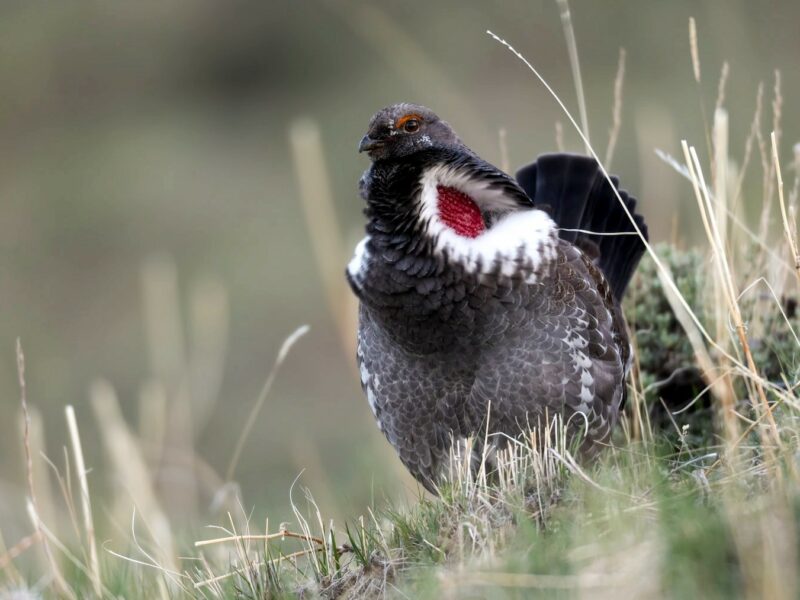An advanced hunter education program in Montana goes beyond the shot to repair sportsmen-landowner relations.
Beneath a grove of tangled cottonwoods growing within the vast and windswept Madison Valley of southwest Montana, 13 Montana residents take a short reprieve in the shade. The tender green of June grasses starkly contrasts the winding waters of O’Dell Creek and its reflection of a cloudless blue sky.
The group is equipped with gloves and hammers, as well as a palpable sense of curiosity. Twelve of them are graduates of the Montana Master Hunter Program administered by the nonprofit organization One Montana; their host, Jeff Laszlo, is a fourth-generation rancher and owner of Granger Ranches. Their goal: to mend a stretch of fence.
The fence in question is 15 years old and is known as a suspension fence. Unlike a traditional barbed wire fence, wooden posts are driven roughly 50 feet apart, with three wooden stays installed in between to support four strands of wire.
“The whole fence has a lot of give to it so when a heard of elk stampedes through, it will almost lie down,” Laszlo says. With the wire spaced to accommodate antelope climbing under and elk and deer leaping over, the intent is to let wildlife through while keeping cattle in, thus protecting a 500-acre wetland along the creek that provides habitat to big game species as well as numerous waterfowl and native plant species.
As open as the Madison Valley is, Laszlo says, it is common during the state’s fall hunting season for sportsmen to stop at the ranch and ask for hunting access, as elk are clearly visible on the land. “You have to almost stop everything else you’re doing to manage hunters,” Laszlo says, adding that there’s always a worry these strangers won’t follow requests or may not engage safely. “Traditionally, there’s been a lot of conflict between sportsmen and landowners throughout the West,” he says.
In an effort to improve these relations, One Montana began the Master Hunter Education program in 2018 as a way of increasing sportsmen and sportswomen’s hunting skills, wildlife knowledge and land stewardship. An integral part of the program is connecting hunters with private landowners.
“In all of our work, we are connecting neighbors in our communities and trying to elevate our collective responsibility to steward Montana’s communities, land and water resources,” says One Montana Executive Director Sarah Tilt. “We really strive to bridge gaps between rural and urban experiences by connecting people to each other and then to resources and expertise.”

Kristen Tripp, front, participates in the shooting qualification during her 2019 final exams for the Montana Master Hunter Program. Photo courtesy of One Montana.
The Master Hunter Education program is a rigorous training course with curriculum that focuses on conservation, stewardship, natural history, ethics and specialized ballistics and marksmanship skills. Courses are held at select locations in Montana and are taught by a group of experienced instructors. Participants–limited to 30 per session–are required to attend 50 hours of in-class instruction and complete a final exam that includes a written test, 250-yard marksmanship assessment and land navigation course. Now in its fifth year, the program has graduated nearly 240 Master Hunters.
“Part of the commitment to a sport like hunting is that you better yourself not only with your skills, but with your stewardship and conservation. It should be a lifelong endeavor,” says 2019 graduate Kristen Tripp. Tripp lives in Bozeman, Montana, and over a decade ago she began hunting as a way to develop a deeper relationship with the food that she eats. It’s an experience that she’s been able to share with her nine-year-old son, and one that she says she’s invested in protecting. “I understand the importance of making sure that the next generation has this opportunity and is engaged in the long-term vision of conservation.”
After graduating, Master Hunters are offered select private land hunting opportunities, but Landowner Relations Manager Kelly Beevers says it’s so much more than a hunting-access program. In order to retain membership as a Master Hunter, graduates are required to complete eight hours of continued education and eight hours of volunteerism each year. This might include volunteering for Montana Fish, Wildlife and Parks’ basic hunter education program, participating in additional training, or attending one of One Montana’s Summer Service Projects, where hunter graduates assist private landowners with conservation and land stewardship projects.
Tripp, who assisted in mending Laszlo’s suspension fence in June, says the experience was an opportunity to see first-hand what goes into big game stewardship. “That insight allows me to have that much more understanding and respect for the hard work that is involved with having ranching property in Montana,” she says. “It’s made it that much more obvious the importance of conserving and protecting open space.”
One Montana hosted 15 service projects in 2021 on ranches that have granted hunting access to Master Hunters as well as on some properties that haven’t. Beevers says these volunteer days allow hunters to learn more about what a landowner experiences and why they may not want to grant hunting access.
“I think when hunters really get to know landowners, they better understand the many nuances of wildlife management,” she says. “These service days create opportunities for people to talk to each other and realize that they have shared values, so when we have challenging community-based decisions or policy decisions related to wildlife management, hopefully more hunters are understood by landowners and more hunters understand landowners and they can advocate for one another instead of being two groups that are often opposed.”
While Montana Fish, Wildlife and Parks is not involved in the administration of the Master Hunter Program, the wildlife department did provide input in curriculum development. In addition to promoting hunter skills and ethics, MT FWP Chief of Staff Quentin Kujala says the program is a valuable opportunity to better manage big game. “The working lands of Montana represent critical habitat for wildlife,” he says.
According to Kujala, leveraging hunter access while recognizing the role landowners play in wildlife management is becoming increasingly important. “Here in Montana and elsewhere across the West, the reality is that the distance between those in urban environments and those in rural environments has continued to grow wider and wider,” he says. “That’s significant because it makes it really hard to have a common appreciation for each other. The [Master Hunter] program recognizes there is growing distance between urban and rural persons and is trying to address that.”
What makes a Master Hunter?
You’ve got to be much more than a crack shot to qualify as a Master Hunter. Shooting is just one of eight parts of the Master Hunter curriculum.
The Big Picture
Hunting ethics, culture, law and wildlife management concepts
Farming and Ranching
The seen and unseen ways private land contributes to healthy communities and hunting opportunities, and the costs wildlife and hunting impose
Landowner/sportsmen relations
Hunt ethics, etiquette, property rights and common issues
Recruit, retain and reactivate
How to be an advocate for hunting and a mentor to new hunters
Wildlife policy advocacy
How to stay informed and engaged about wildlife policy in Montana
Hunting skills before the shot
Tracking, field navigation, proper preparation and gear, first aid and safety, and understanding game species behavior
Making the shot
Ballistics, placement, field marksmanship, knowing your weapon, understanding your capabilities and firearm safety
After the kill
Field dressing, retrieval/packing out and appropriate follow-up with landowner
Featured image courtesy of Emmie Sperandeo, Steady Rein productions.





